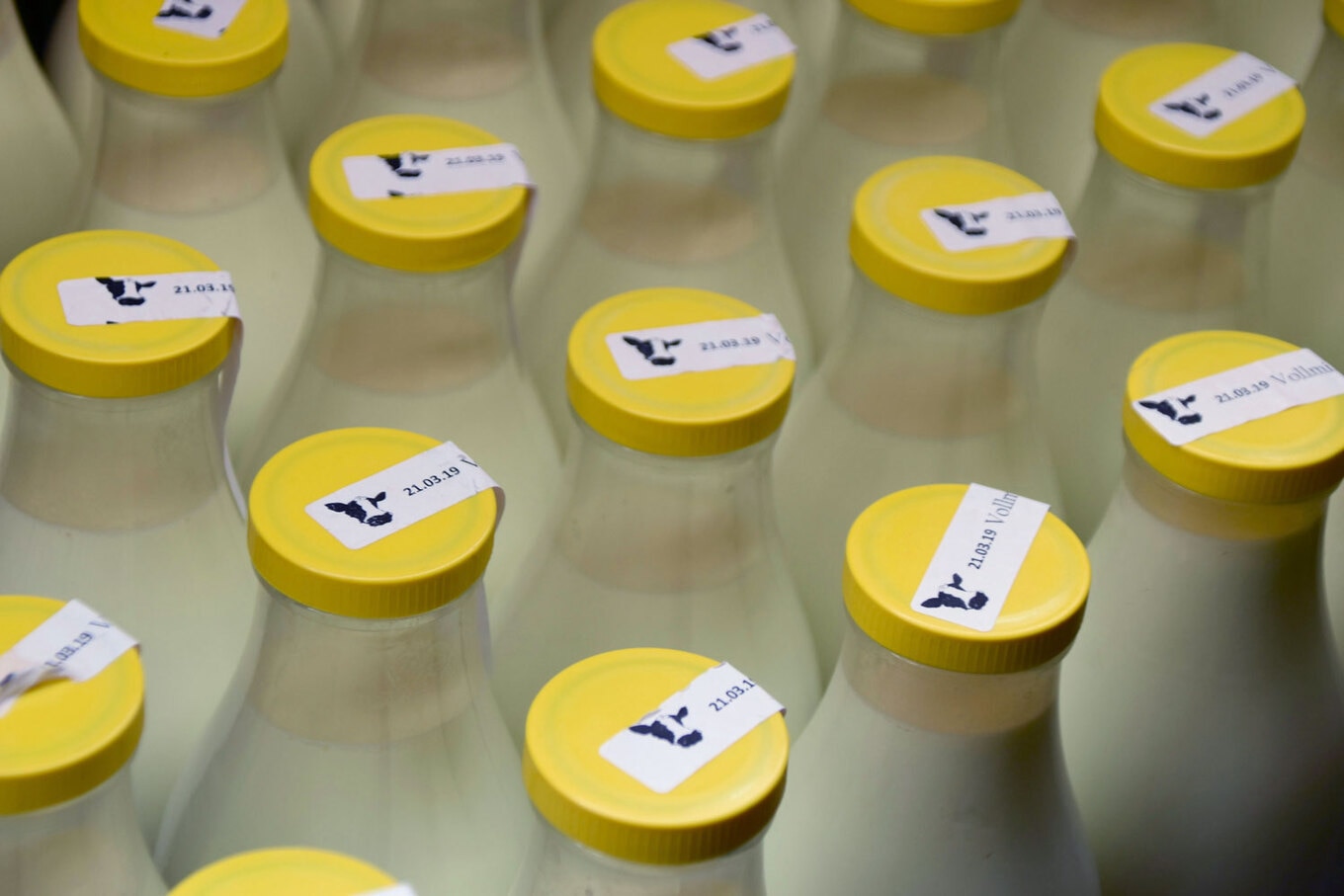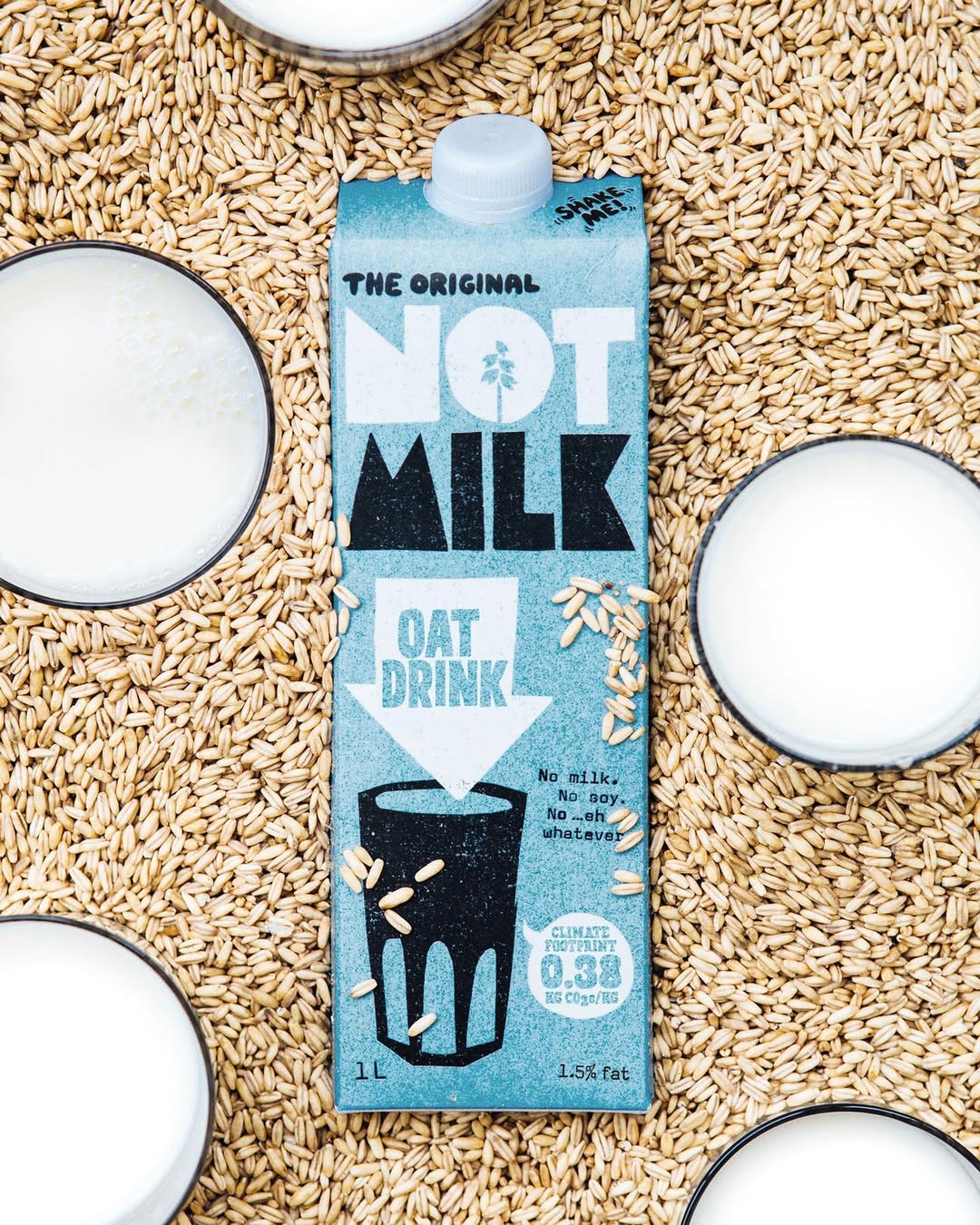As the recognition of plant-based milk alternate options continues to develop, the US Meals and Drug Administration faces mounting strain to make clear labeling requirements for these merchandise. At a current Senate committee listening to, the talk over phrases together with “milk” and “dairy” reignited tensions between conventional dairy producers and plant-based meals firms. Whereas shopper demand for alternate options akin to almond, oat, and soy milk surges, regulators are challenged to stability transparency, shopper training, and equity in labeling.
Throughout the December 5 listening to of the Senate Committee on Well being, Training, Labor, and Pensions, lawmakers explored the function of the FDA in guaranteeing clear, truthful labeling of plant-based and cell-cultured merchandise. Senator Tammy Baldwin (D-Wisc.), criticized the FDA’s draft steering, which allows using phrases like “milk” for plant-based drinks when appropriately certified. “Research constantly present that buyers mistakenly consider that plant-based alternate options are nutritionally equal and even superior to dairy merchandise, and on the identical time, the inappropriate substitution of non-dairy alternate options has been linked to a spread of well being points in kids and in infants,” she mentioned. Baldwin additional famous that such misconceptions would possibly hurt shopper well being, notably when merchandise lack the vitamins present in conventional dairy.
 Waldemar/Unsplash
Waldemar/Unsplash
FDA Deputy Commissioner for Human Meals Jim Jones defended the company’s method, emphasizing that present guidelines require plant-based drinks to determine their supply—akin to “soy milk” or “almond milk.” Based on Jones, merchandise should additionally embrace allergen warnings and meet federal labeling requirements. Nevertheless, Baldwin remained unconvinced, questioning whether or not voluntary dietary comparisons between plant-based and dairy merchandise would tackle shopper confusion. “It’s laborious to consider that plant-based alternate options would willingly spotlight the dietary disadvantages of their merchandise in comparison with actual milk,” she added.
World approaches to dairy labeling
The US isn’t alone in its wrestle to outline dairy. Throughout the Atlantic, the EU enforces a number of the world’s strictest dairy labeling rules. Below EU legislation, phrases like “milk,” “cheese,” and “butter” are reserved solely for animal-derived merchandise. This prohibition extends to descriptors like “oat milk,” which should as a substitute be labeled as “oat drink” within the EU. The bloc’s strict stance goals to guard conventional dairy producers and cut back shopper confusion.
 Oatly
Oatly
Compared, the FDA’s extra versatile steering permits plant-based drinks to make use of dairy phrases, supplied they’re certified to point their supply. This distinction displays a broader cultural divide: US regulators prioritize shopper selection and innovation, whereas the EU seeks to safeguard heritage and guarantee readability via inflexible definitions.
In the meantime, some international locations have taken distinctive stances. As an illustration, Canada adopted a hybrid method, the place plant-based drinks can use phrases like “milk” if accompanied by clear qualifiers and dietary disclosures. These worldwide examples illustrate the number of methods used to deal with the rise of plant-based merchandise whereas sustaining shopper belief.
Dietary requirements and dietary pointers
A key level of rivalry within the US listening to was whether or not plant-based merchandise ought to disclose how their dietary content material compares to conventional dairy. Advocates for stricter rules, together with Senator Baldwin, argue that such comparisons are very important for shopper training. Critics, nonetheless, recommend this method might unfairly drawback plant-based firms. Throughout the listening to, Baldwin additionally raised issues in regards to the potential for deceptive advertising of lab-grown dairy proteins, that are produced by way of precision fermentation and marketed as bio-identical to conventional dairy. These merchandise are required to incorporate allergen warnings however face no further labeling necessities distinguishing them from animal-derived milk.
Jones, the FDA official, highlighted the company’s reliance on shopper analysis, stating, “We’re taking that remark into account … Finally, I can not say the place we are going to land on that concern, however the dietary equivalence concern could be very a lot on our radar.” Regardless of such assurances, lawmakers like Baldwin expressed frustration with the FDA’s perceived inaction, calling for extra stringent oversight to make sure honest competitors and shopper readability.
The debates comes because the Dietary Tips Advisory Committee (DGAC) has proposed important updates for the 2025-2030 Dietary Tips for People, emphasizing plant-based proteins over conventional animal-derived sources. This shift displays a rising physique of scientific proof supporting the well being advantages of plant-based diets.
 Workplace of Illness Prevention and Well being Promotion
Workplace of Illness Prevention and Well being Promotion
Of their last public assembly on October 21 and 22, the DGAC reviewed suggestions and solidified suggestions to prioritize plant-based meals over animal-derived proteins like meat, eggs, and dairy, that are related to greater saturated fats ranges. The committee means that legumes—akin to beans, peas, and lentils—be formally acknowledged as protein sources slightly than being categorized as greens. This reclassification goals to make clear the function of protein-rich meals in a balanced weight-reduction plan and tackle misconceptions about protein sources in vegan diets.
The DGAC’s report underscores the significance of nutrient-dense, plant-based meal choices, aligning with the scientific consensus on the well being benefits of plant proteins. The committee recommends that the Division of Well being and Human Providers (HHS) and the USDA revise the Dietary Tips’ protein meals class to prioritize plant-based sources akin to nuts, seeds, and soy merchandise over meat and dairy.
The proposed pointers additionally advise limiting saturated fats consumption to lower than ten % of day by day energy, suggesting the alternative of higher-fat animal merchandise with lower-fat, plant-based alternate options. Oils excessive in saturated fats, like coconut and palm oil, are advisable to be excluded from the up to date pointers.
The report highlights the potential well being advantages of plant-based diets, citing research that point out a discount in all-cause mortality threat amongst people adhering to plant-based dietary patterns. Whereas terminologies akin to “Mediterranean” or “plant-based” differ, the consensus is that diets wealthy in nutrient-dense meals are linked to improved long-term well being outcomes.
 Manu Schwendener
Manu Schwendener
A notable suggestion is the emphasis on water as the first beverage of selection. The present Dietary Tips suggest three servings of dairy per day, no matter particular person dietary wants—a tenet that poses challenges for individuals who are lactose illiberal, a situation extra prevalent in sure racial and ethnic teams. The committee advocates for plain water because the default beverage, contemplating it a more healthy and extra universally accessible possibility.
The DGAC’s suggestions are primarily based on a complete assessment of scientific literature, meals sample modeling, and skilled enter. The ultimate report serves as the muse for the forthcoming revisions to the Dietary Tips for People, which inform dietary suggestions for federal packages. The general public could have sixty days to offer suggestions on the report, out there on the DietaryGuidelines.gov web site.
For extra plant-based tales like this, learn:
